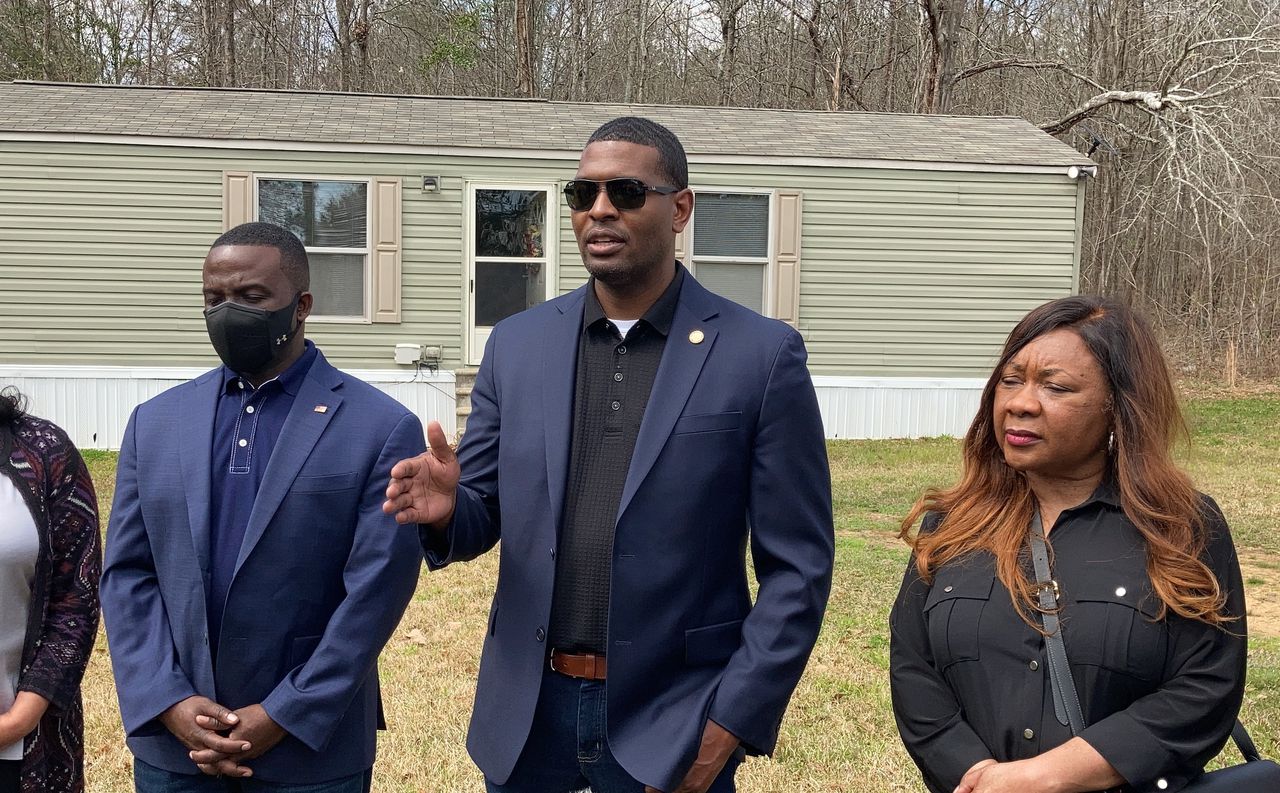EPA to investigate whether Alabama withheld sewer funds from Black Belt
The U.S. Environmental Protection Agency has opened an investigation into whether Alabama discriminated against Black residents when handing out billions of dollars in federal infrastructure funding.
The EPA announced Tuesday it was opening the investigation after a complaint filed in March by Lowndes County native and MacArthur “genius” grant recipient, environmental activist Catherine Coleman Flowers and other environmental and civil rights groups.
The complaint says the state awards grants in a way that makes it more difficult for Black communities to receive funding.
“Sanitation is a basic human right that every person in this country, and in the state of Alabama, should have equal access to. Those without proper sanitation access are exposed to illness and serious harm,” Flowers said in a news release. “We are hopeful that the EPA’s investigation will result in positive change for any Alabama resident currently relying on a failing onsite sanitation system and for all U.S. communities for whom justice is long overdue.”
ADEM is the lead agency in handing out more than $1 billion in federal funding to address wastewater and drinking water across the state, including Black Belt communities in southern Alabama which are very rural, have high poverty rates and feature soil laden with impermeable clay that makes installing traditional septic tanks difficult or impossible.
The U.S. Department of Health and Human Services and the Justice Department already announced a settlement of a civil rights investigation into the Alabama Department of Public Health in May in which the state agreed to provide sewage treatment services for residents in Lowndes County.
READ: Alabama Black Belt becomes environmental justice test case: Is sanitation a civil right?
The EPA said in its announcement that initiating the investigation does not mean the agency has made any determination about the merits of the complaint.
The agency said it will specifically investigate whether ADEM’s implementation of the Clean Water State Revolving Fund program excludes or discriminates against Black Belt residents and whether ADEM has grievance procedures in place to resolve complaints that allege discrimination.
ADEM did not immediately respond to a request for comment Wednesday, but has said previously that it distributes more funding per capita in the Black Belt than in other areas of the state, including a $10 million project in Lowndes County and other grants it has funded.
“In 2022, 34% ($157 million) of the $463 million of drinking water and wastewater funding awarded by ADEM went to Black Belt counties where 10.6% of Alabama’s population resides,” the department said in March. “Disadvantaged Black Belt areas received funding at three times the rate of other areas.”
The Black Belt, long ago named for the dark and fertile soil that supported cotton and led to large plantations once worked by enslaved people, now includes a swath of some of the poorest counties in the nation. The region stretches across the length of southern Alabama from the Mississippi state line to the border with Georgia.
Flowers is the founder of The Center for Rural Enterprise and Environmental Justice and author of the book “Waste: …” detailing how rural communities across the nation struggle with basic sanitation issues. Earlier this year, she was named among Time magazine’s 100 most influential people of 2023.
The complaint was filed by Flowers’ group as well as the Natural Resources Defense Council, represented by the Southern Poverty Law Center, alleging a violation of the Civil Rights Act of 1964, which prohibits entities that receive federal funding from discriminating on the basis of race, color, sex, religion or national origin.
READ: The story of Catherine Flowers, a Lowndes County native turned environmental activist
EPA Administrator Michael Regan in Lowndes County, Alabama, with EPA Region 4 Administrator Daniel Blackman (L) and Catherine Coleman Flowers (R) on March 5, 2022. Dennis Pillion
EPA Administrator Michael Regan has visited Alabama’s Black Belt at least twice since taking over as the head of the EPA, calling the conditions found in Alabama “unacceptable,” and vowing to address the problem.
“Safe drinking water, safe sewer systems, you know, this is a basic right,” Regan said in Lowndes County in 2022. “These individuals deserve what every American deserves, which is clean water and a safe environment.”
The NRDC, in a news release, argued that ADEM discriminates against Black communities in the following ways:
- ADEM created a point system to rank project proposals and decide which projects to fund. But ADEM’s ranking system makes it impossible for people who rely on onsite sanitation to earn enough points to secure funding.
- ADEM does not consider financial need in its ranking system.
- For the past four years, ADEM has unreasonably limited the amount of loan forgiveness it offers people with financial need.
- The department has conducted inadequate outreach to disadvantaged communities regarding the availability of state revolving fund money.
- ADEM only allows public bodies to apply for state revolving fund support. This rules out individuals, homeowners’ associations, community groups and nonprofit organizations who would otherwise be eligible.
- ADEM has failed to offer alternative financing options for those unable to issue bonds.
“We filed this complaint in the hopes that it would help not only Alabama’s Black Belt counties, but all 67 counties across the state,” said Aaron Colangelo, Chief Litigation Counsel at NRDC. “Alabama disburses tens of millions of dollars every year through the state revolving fund, but they have never awarded a single dollar of that money to people with onsite sanitation needs. We know they can do better.”
